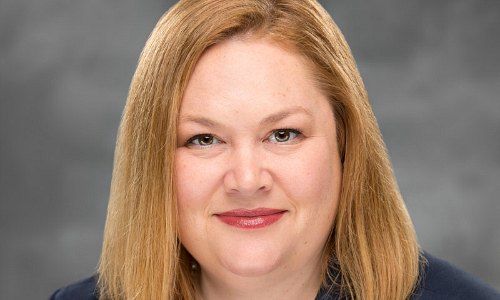Heather Lowe: «Banking Secrecy is Far From Dead»
Is client secrecy dead at Swiss private banks? Far from it, Heather Lowe of Washington, D.C.-based think-tank Global Financial Integrity tells finews.asia.
Ms Lowe, have the reports of the death of banking secrecy because of the automatic exchange of information, or AEOI, and FATCA, the Foreign Account Tax Compliance Act, been greatly exaggerated?
Yes. For Americans and, to a lesser extent Europeans, it has become much riskier to hide money abroad. However AEOI and FATCA have not really affected the ability of a wealthier person in many developing countries to hide their wealth abroad – however they may have come by their riches. The reason for this in the U.S. is that the U.S. does not have reciprocal information sharing arrangements with most developing countries.
For example, the U.S. is not sending information about accounts held in the U.S. by a developing country citizen, but still expects to receive information on Americans with accounts in that developing country from its banks.
«Only the rich countries are currently benefiting from automatic exchange of information»
European countries have signed up to automatic exchange of financial information under the OECD system, as have many developing countries, but countries must choose one another in order to actually begin exchanging. If you look at the exchange matches so far, you will find that very few developing countries have been «chosen». As a result, only the rich countries are currently benefiting from the system.
Likewise, where a developing country is able to support a stable banking system, they may actually become quite attractive as a new tax haven in future.
What loopholes do you see that can still be exploited by taxpayers using offshore accounts in Switzerland?
The loopholes in the current system are no different for Switzerland than for other countries, apart from the U.S., which has some differences. Some of those are that banks only have to report information for accounts where someone holds 25 percent or more of the assets.
So if I were to create a shell company to open the bank account and listed myself and four other nominees as 20 percent shareholders, then nobody would own more than 25 percent of the assets in the account, through the company, and the account would not be reportable.
«Residency or citizenship as a tax loophole»
Another is that account holders with accounts holding less than $250,000 as of December 31, 2015 are not reportable, even for accounts opened thereafter. It is also possible to literally buy citizenship or residency in several countries in the world where there is no income tax, and thus those countries do not receive information under automatic exchange because there is no reason for them to.
Therefore a person can get around the reporting requirements by buying such citizenship or residency and reporting that to the bank, instead of their true residency.
«OECD approach is a huge step forward, but nothing is perfect in its first iteration»
And only accounts with passive income like interest or investment income and so on must be reported, while accounts with active business income and safe deposit boxes do not. There are also some issues with identification on trusts.
To be clear, however, the OECD's global approach to automatic exchange of financial information is a huge step forward and it is important to acknowledge that nothing is ever perfect in its first iteration. It is critical to move forward, but to do so understanding that loopholes will need to be fixed down the line and that the OECD needs to work on ensuring that the system truly works for all countries.
What improvements would you have made to the AEOI regime to ensure that tax revenue is not being lost?
The fixes to all of the issues that I've just identified are pretty straight-forward: lower the 25 percent threshold to something more difficult to get around, like the 5 percent beneficial ownership reporting threshold required by the Securities and Exchange Commission; do not «grandfather» in existing accounts; create a blacklist of countries that sell citizenship or residency; and include both passive and active income accounts.
How great is the risk that Switzerland remains an offshore haven for untaxed money, or funds of criminal origin?
Switzerland is still going to be a haven for money from developing countries unless they begin to be included in the automatic exchange as a practical matter. It is also important to note that the information exchanged goes to tax authorities and is supposed to be used exclusively for tax purposes.
«New regime doesn't do much to curb money of criminal origin»
Therefore it may be difficult to bring money laundering, corruption, human trafficking, drug, organized crime, and other cases based on this information. In some ways, that means that this new regime doesn't do much to curtail money from other criminal origins – unless that requirement is relaxed.
Switzerland has lived well off private banking for centuries. How would you paint its banking future?
It is certainly getting more difficult to prop up the Swiss system with their competitive edge being bank secrecy. Banks are going to need to think hard about what their value added is and can be if it is not banking secrecy. The market needs to shift focus, and those who are behind the curve and slow to adapt are less likely to survive this shift.
Heather Lowe is Legal Counsel and Director of Government Affairs for Global Financial Integrity, a non-profit Washington, D.C.-based research and advisory organization which promotes pragmatic transparency measures in the international financial system. Prior to joining GFI, she served as an aide to a British Member of the European Parliament in Brussels and worked as a banking and finance attorney at Clifford Chance LLP in London, and at Bingham McCutchen LLP in Boston.























